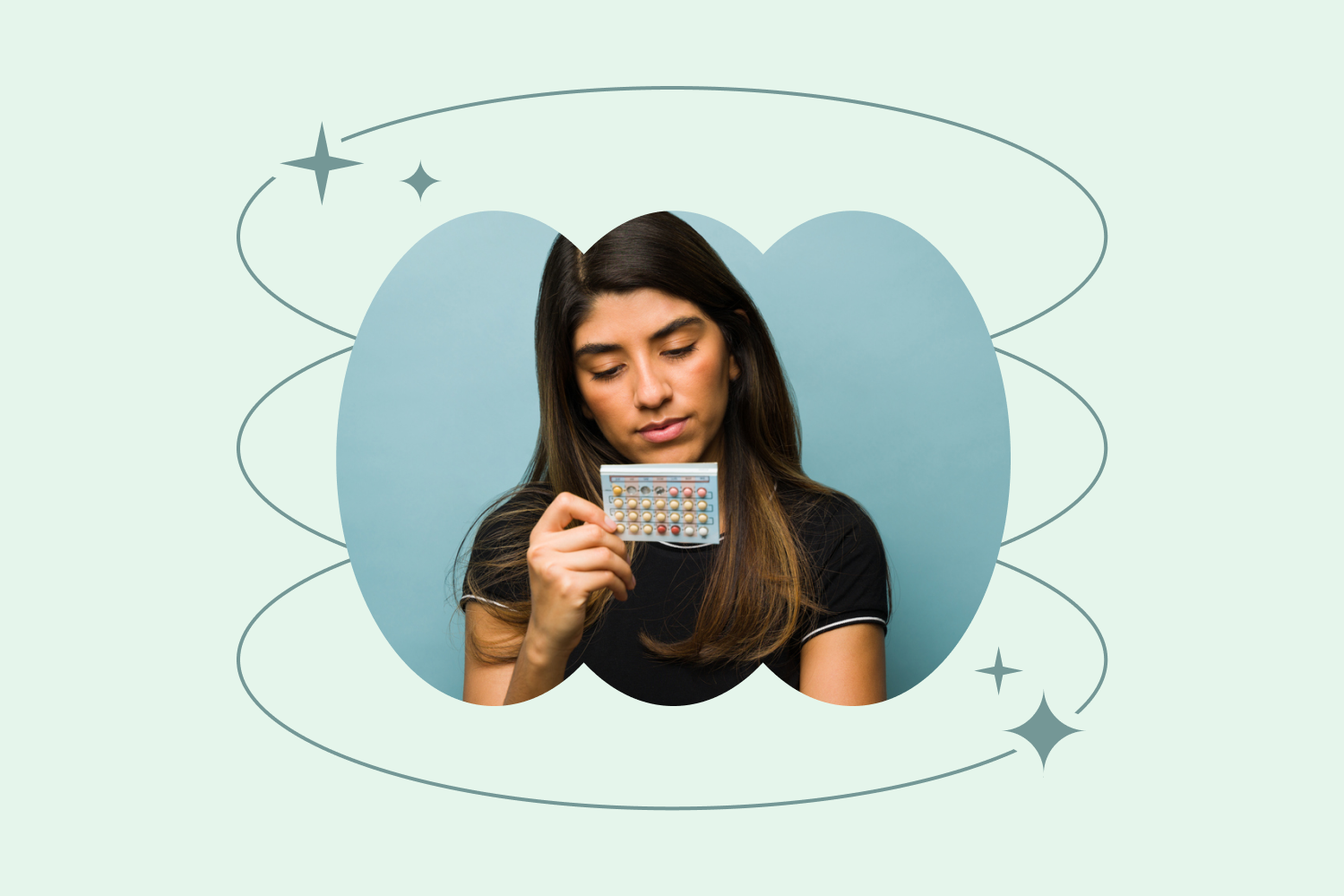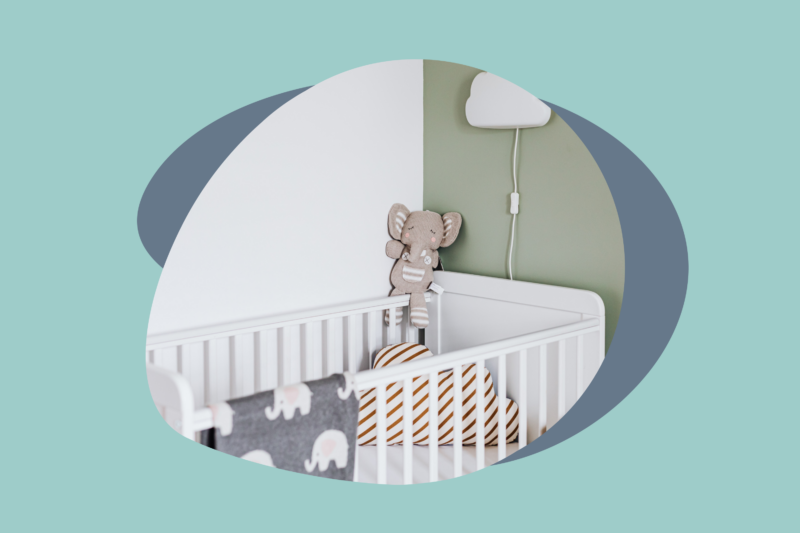What Is a Birth Control Cleanse? And Do I Need One?
Whether you’re trying to conceive, just starting your fertility journey, or you feel like your body needs a reset, going off hormonal birth control can be a big decision. Maybe you’ve just started research about ending your birth control and you’ve started seeing terms like birth control cleanse, birth control detox, or post-birth control syndrome and don’t even know what they mean?

This post will take a helpful look at what a birth control detox entails, what to expect from one, and whether you even need to detox your body from birth control.
Do you need a birth control cleanse?
Do you need to do a birth control cleanse to reset your hormones? The short answer is no. But every woman’s body is different, and even though there is no scientific necessity for a cleanse, you may experience a range of symptoms when going off hormonal birth control.
How you feel off birth control will largely depend on the reasons why you went on the pill in the first place. If you were on the pill to control symptoms such as heavy bleeding, irregular periods, or even PCOS and endometriosis, those symptoms are likely to return once you stop taking it.
Generally speaking, menstrual cycles correct themselves within a few months of being off birth control and there are no long term effects on overall fertility.
What is a birth control cleanse?
Birth control cleanses and detoxes claim to prepare your body for pregnancy by resetting your hormone balance and uterine health. They claim to help your body flush synthetic hormones faster than it might on its own.
There are a variety of products available in drink form, but most of them follow a similar formula. Many contain chasteberry which is an herbal supplement often used to ease PMS symptoms. Studies on the supplement have been inconclusive regarding its effectiveness on reproductive health. There are several possible side effects related to its use such as heavy menstrual periods, acne, and headaches.
Other common ingredients include:
- Iodine for healthy thyroid function
- Folic acid to decrease symptoms of PMS and for early fetal development
- Vitamins C and E for improved liver function to help breakdown excess hormones and toxins
How do cleanses work?
Most cleanses come in powder format, designed to be mixed with a non-carbonated beverage and taken every day. The supplements are usually taken for 2-3 cycles and begin on the first day of your non-medicated cycle.
Makers of cleanses claim that their products help the body’s natural processes work faster, with powerful nutrients to reestablish hormone health and rid the body of excess hormones caused by birth control.
While it’s true that your body may take time to return to normal (it can take anywhere from 1-3 months before regular ovulation occurs), there is no medical need to detox from birth control.
Are there any risks?
As with any supplement, there may be risks associated with the specific ingredients involved. It is always best to check with your doctor to make sure the ingredients won’t interfere with any other medications you are taking, or with risk factors in your personal history.
Why are cleanses beneficial?
When you stop hormonal birth control your body will naturally move the hormones through your system. There is no evidence that you need any special procedure or product to “cleanse” your body to return to normal cycles.
What you can do instead is:
- Follow a healthy diet
- Get regular exercise
- Start prenatal supplements if trying to conceive
- Follow up with your personal doctor
Give your body time and it will reset itself. Some of the ingredients found in birth control cleanses are good for you and can help promote a healthy pregnancy. However, you do not need to get them in a cleanse and are better off getting them in multi or prenatal vitamins that also contain nutrients and vitamins that have been proven to support a healthy system.
When you decide to stop hormonal birth control it is important to discuss it with your doctor. Your personal health care team will be able to advise you on what to expect based on why you went on birth control to begin with, your reproductive health, and the form of contraceptive you were on. Your doctor will also be able to advise you on the side effects and risks of a birth control cleanse should you decide to do one and on possible vitamins to take instead.
What to expect when you stop birth control
First, it is helpful to understand what happens to your body when you take hormonal birth control.
Hormonal birth control comes in two forms:
- Progestin-only pills or mini pills contain only progestin.
- Combination pills (COCs) which is the most common type. This version uses both estrogen and progestin.
Both types release synthetic hormones into your body to trick your brain into thinking that you are ovulating. These hormones prevent the signal being sent for your ovary to release an egg and therefore prevent pregnancy from occurring.
Every woman responds differently to stopping birth control. Some women will see the return of regular ovulation in the first few weeks while others might not have it for a few months.
It is common to experience the following symptoms:
- Irregular or heavy periods
- Mood swings
- Headaches
- Acne
- Changes in sex drive
- Withdrawal bleeding
Most of these symptoms gradually disappear unless the reason you started birth control was to mitigate any of these. If you experienced these symptoms prior to birth control, you can expect them to return as part of your normal cycle.
Your body will adjust back to your body’s natural hormonal cycle. It can be helpful to track this using an advanced fertility tracker such as Mira. This will allow you to see your LH peak and see it return to normal levels.
How long does it take to get birth control out of your system?
Birth control pills work by preventing ovulation, so once you stop taking them, it shouldn’t take long for the hormones to get out of your body.
What takes longer is for your body to return to normal ovulation. For some women this can happen as early as two weeks, while others can take 2-3 cycles to return to normal ovulation. Tracking your cycle can help you determine your personal return to normal and if normal ovulation hasn’t returned within 6 months, it’s time to call the doctor.
Mira’s Editorial Process
All content produced by Mira meets stringent editorial standards, ensuring excellence and accuracy in language and medical precision. Every piece undergoes thorough fact-checking and review by qualified professionals. Check out our full editorial process to learn more.










